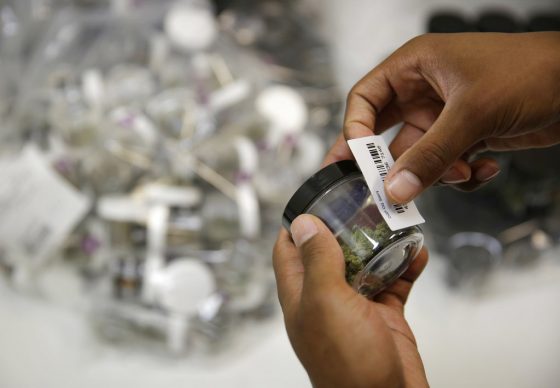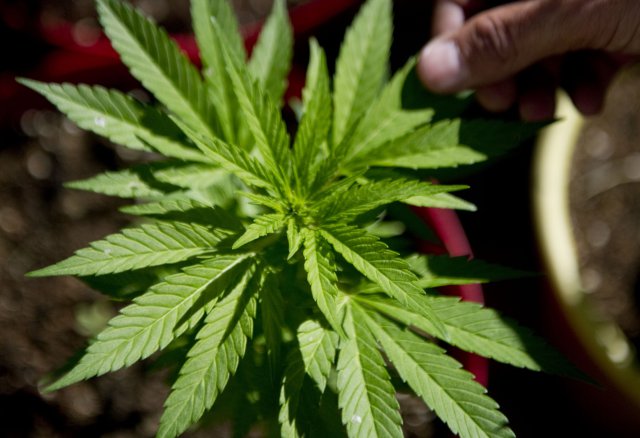While adults in Washington can buy recreational marijuana from scores of stores, it remains illegal to grow your own without a medical card.
But now the state is investigating options that could allow such grows.
Opponents say home grows would be difficult to regulate and would decrease retail sales, which, in turn, would reduce state revenues.
But supporters note that Washington is the only one of eight states allowing recreational marijuana sales that doesn’t allow residents to grow their own plants. Allowing home grows, they say, is simply the next logical step.
Under orders from the Legislature, the state Liquor and Cannabis Board is conducting a survey with three potential options allowing home grows.
“Ultimately, we’ll take the feedback from the public, other states — we’re meeting with people in the industry and just had a meeting from the Association of Washington Cities earlier this week — and present it to the Legislature,” said board spokesman Mikhail Carpenter.
The three options are considered a starting point to give residents and stakeholders something to respond to could be tweaked after the board gets feedback.
The options are:
• Tightly regulate recreational home grows and require residents to enter their plants into a state traceability system.
• Locally control recreational home grows, which doesn’t require residents to register their plants — but they must have a local permit.
• No change to the current system, allowing home grows only for medical marijuana patients and cooperatives.
Officials are expected to present the study findings to legislators no later than Dec. 1.
A main concern of opponents, including police, is the ability to regulate who is doing the growing, said Colorado Municipal League deputy director Kevin Bommer. Colorado is one of the seven states that allow any residents older than 21 to grow cannabis.
“There are plenty of news articles about homes being used as grow houses and, in some cases, coordinated by multiple people who are using it to traffic black- market marijuana in and outside Colorado’s borders,” he said. “That’s not very good for neighborhoods and communities.”
In the seven states allowing home grows, residents are restricted to a limited number of plants, among other restrictions. It’s unclear how often the rules are violated as police tend to concentrate on large-scale operations.
The survey option requiring residents to register their plants, in theory, could crack down on residents breaking the law. But some are skeptical that people would actually register their plants.
“How many people are really going to barcode their plants and put them in the traceability system? (Allowing home grows) is pandering to the black market,” said Ken Weaver, the owner of Slow Burn, a marijuana shop in Union Gap. “But don’t get me wrong, I think people should have the freedom to grow what they wish and consume what they wish.”
Others say home grows will reduce the number of people buying pot from retailers — decreasing taxes the state and cities are collecting.
At least two local retailers aren’t too worried.
“If commercial growers can’t compete with home grows, they shouldn’t be in business,” said Liz Hallock, owner of Sweet Relief, a recreational and medical marijuana store in Yakima.
Weaver said he believes an individual’s right to grow trumps the possibility of it hurting retail sales.
Some argue that people who could benefit from medical marijuana either can’t get a medical card allowing them to grow and can’t afford to buy at pot stores.
John Ramos, who’s a part of a local medical marijuana growing collective, supports home grown.
“If people can grow their own brew, they should be able to grow their own weed,” he said.
Former Yakima resident and marijuana advocate Jedidiah Haney likens it to people who grow organic produce: They know what’s in their marijuana because they grew it.
Hallock said the recent kidnapping and killing of a Cheney pot store worker shows a need to allow people to get marijuana legally without going to a store.
“We have steered too far from the free market model towards a police model that restricts supply to people who cannot afford the rec shops,” she said in an email to the board. “How many people are going to be murdered over marijuana this year in Washington? Is it really worth a little bit more tax revenue to shut down all access points to supply in favor of corporate need?”
In ordering the survey, the Legislature said any new recommendations must adhere to a 2013 U.S. Department of Justice memo.
The memo said states legalizing marijuana must maintain strict regulations tracing plants and products to ensure they’re not moved out of state or given to minors, gangs or cartels.
Carpenter said the Legislature could wait several years to take any action.
“In 2013 we did a study about the integration of medical marijuana and how to best regulate it and then the actual legislation for medical marijuana didn’t come around until 2015,” Carpenter said.
credit:420intel.com





